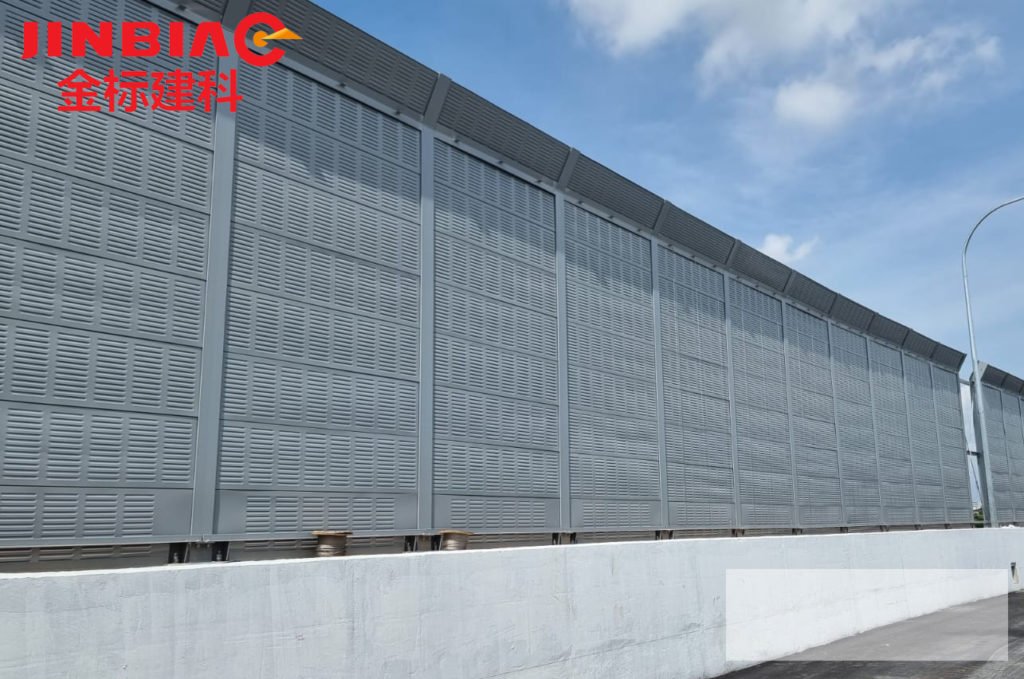
As cities continue to expand and populations increase, controlling environmental noise pollution has become a pressing issue. One of the most popular methods for mitigating outdoor noise is the use of sound barriers. These barriers are often designed to prevent sound waves from reaching nearby neighborhoods, reducing the impact of traffic, industrial activities, and other sources of noise.
However, despite their widespread use, noise barriers have limitations that may not always make them the most effective solution for noise reduction. These include:
Sound barriers are effective at reducing noise levels, but they are not a complete solution.
Sound barriers are widely used to mitigate the impact of noise pollution on communities and infrastructure. These structures have proven effective at reducing the transmission of sound waves from highways, railways and airports to the surrounding areas. However, despite their effectiveness, sound barriers have several limitations that must be considered.
While they can dramatically reduce noise levels in certain situations, they are not a complete solution on their own. In some cases, sound barriers may even make the problem worse by redirecting noise towards other areas or causing acoustic shadow zones to develop. It is important to remember that noise barriers are only one option in a range of noise mitigating strategies and should be used in conjunction with other measures. Furthermore, the design, placement and maintenance of sound barriers require careful consideration to ensure maximum effectiveness.
Sound barriers are most effective at blocking direct sound waves, but do not block sound waves that travel around or over the barrier.
When it comes to reducing the impact of noise pollution, sound barriers have been a popular solution. However, it is important to recognize their limitations when it comes to blocking sound waves. Sound barriers are most effective at blocking direct sound waves, but do not block sound waves that travel around or over the barrier. This is due to the sound waves diffracting or bending around the barrier, which lessens its effectiveness in blocking noise.
As a result, the placement and height of noise barriers must be carefully considered to minimize the impact of noise pollution. It is also important to consider supplementary solutions such as vegetation or natural barriers which can help to absorb and diffuse the sound waves.
Sound barriers are limited in their ability to reduce low-frequency noise, such as the rumble of heavy trucks or aircraft.
When it comes to reducing noise pollution, sound barriers are often implemented as a solution. However, it is important to understand their limitations. One such limitation is that sound barriers are not effective in reducing low-frequency noise, such as the rumble of heavy trucks or aircraft. This is because low-frequency noise can penetrate through the barrier and continue to travel over long distances. .
As a result, it is essential to consider other methods, such as quieter vehicles or modifying aircraft engines, in order to effectively reduce the impact of low-frequency noise pollution.
In conclusion, noise barriers can be effective in reducing noise pollution in certain situations, but they also have limitations. Sound barriers cannot completely eliminate noise, and they may not work well in areas with high winds or open spaces.
Overall, it’s important to carefully consider the specific needs and limitations of each situation when deciding if sound barriers are the right solution for reducing noise pollution.
Hebei Jinbiao is a leading company in Noise Barrier products and Fencing products in Singapore. We guarantee to provide you with the most high-quality Sound Barrier and Fencing products along with our dedicated assistance. Do not hesitate to contact us. We are looking forward to helping you solve your noise issues, safety issues and protecting you from noise pollution as well as ensuring your safety.
